In pics: technological innovation benefits daily lives
In recent years, high-end technologies such as artificial intelligence and augmented reality have been widely applied in many fields of Chinese society, bringing tangible benefits to people’s lives. As a platform showcasing the latest trends in Internet technology development, the World Internet Conference (WIC) Wuzhen Summit has exhibited many practical innovations developed by various enterprises. Let’s see how these technologies can bring benefits to our daily lives.
Augmented Reality Industrial Glasses
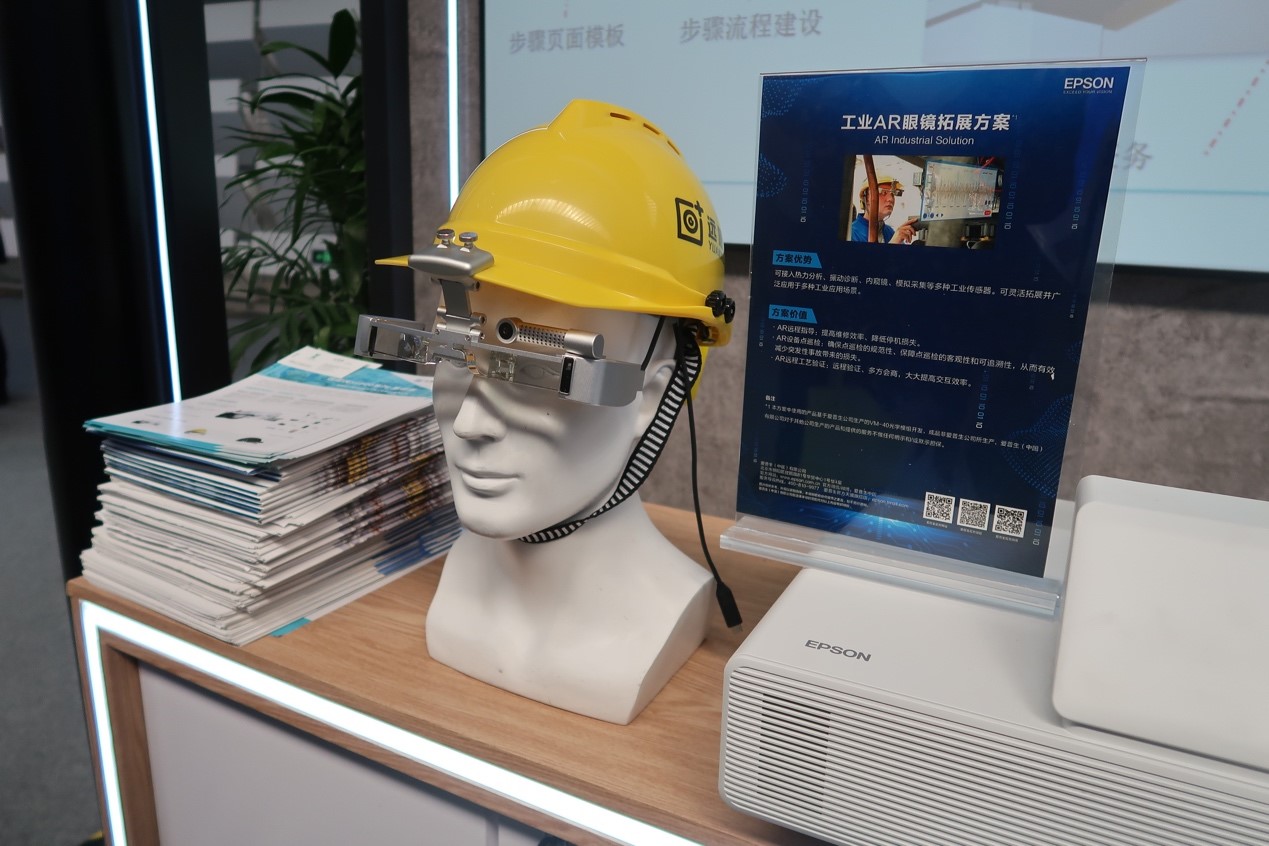
A photo shows a pair of AR industrial glasses at the Light of Internet Expo in Wuzhen, east China’s Zhejiang Province on Nov. 10, 2022. (People’s Daily Online/Wu Chaolan)
AR industrial glasses are wearable devices that display digital content before users’ eyes without cutting them off from the world around them. Remote maintenance and personnel training are two of the essential application scenarios of this product. The device turns front-line staff into experts’ eyes and hands. Experts can see the scene remotely and give front-line staff operational instructions through the glasses. The device also allows the trainee to practice maintenance operation virtually. It has been applied in various sectors, such as car manufacturing.
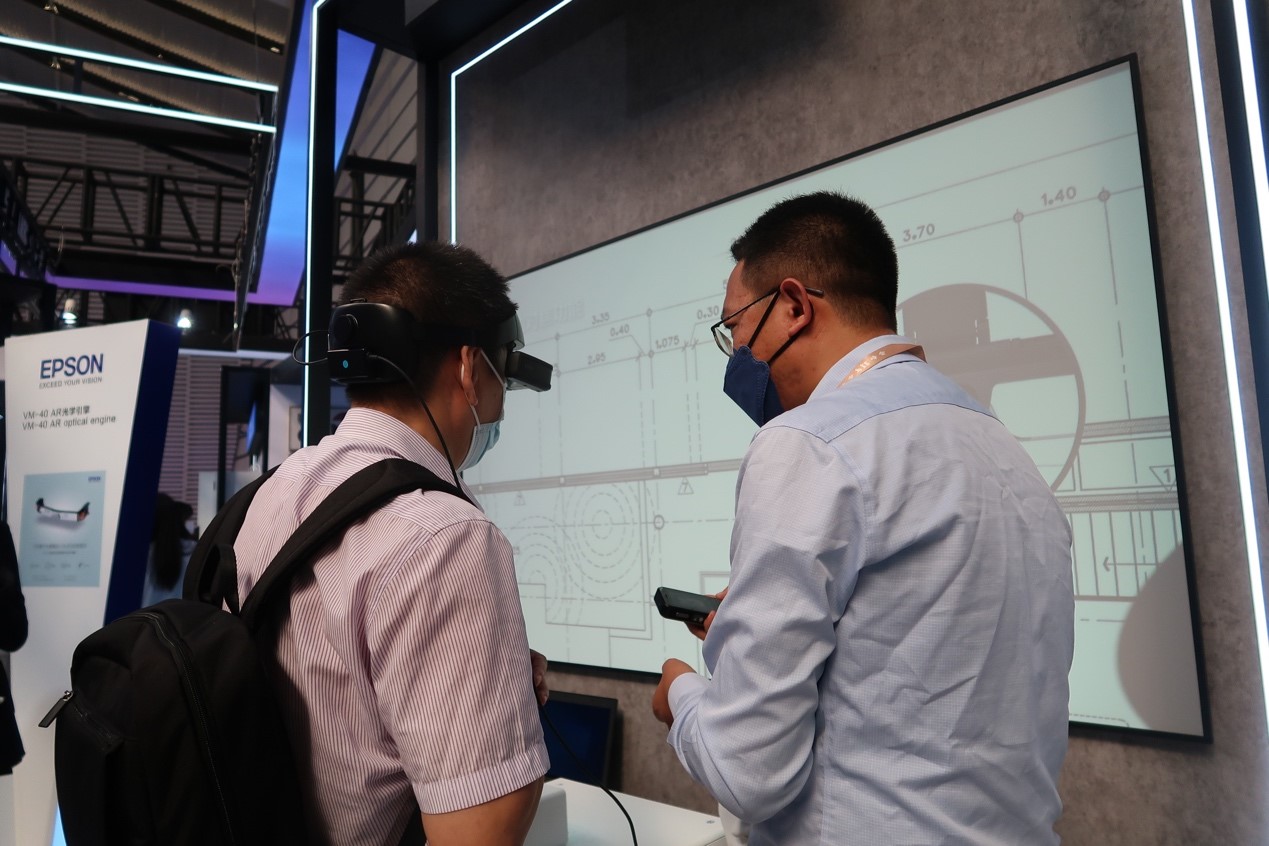
A man wears a pair of AR industrial glasses under a staff member's instruction at the Light of Internet Expo in Wuzhen, east China’s Zhejiang Province on Nov.10, 2022. (People’s Daily Online/Wu Chaolan)
Metaverse Conference
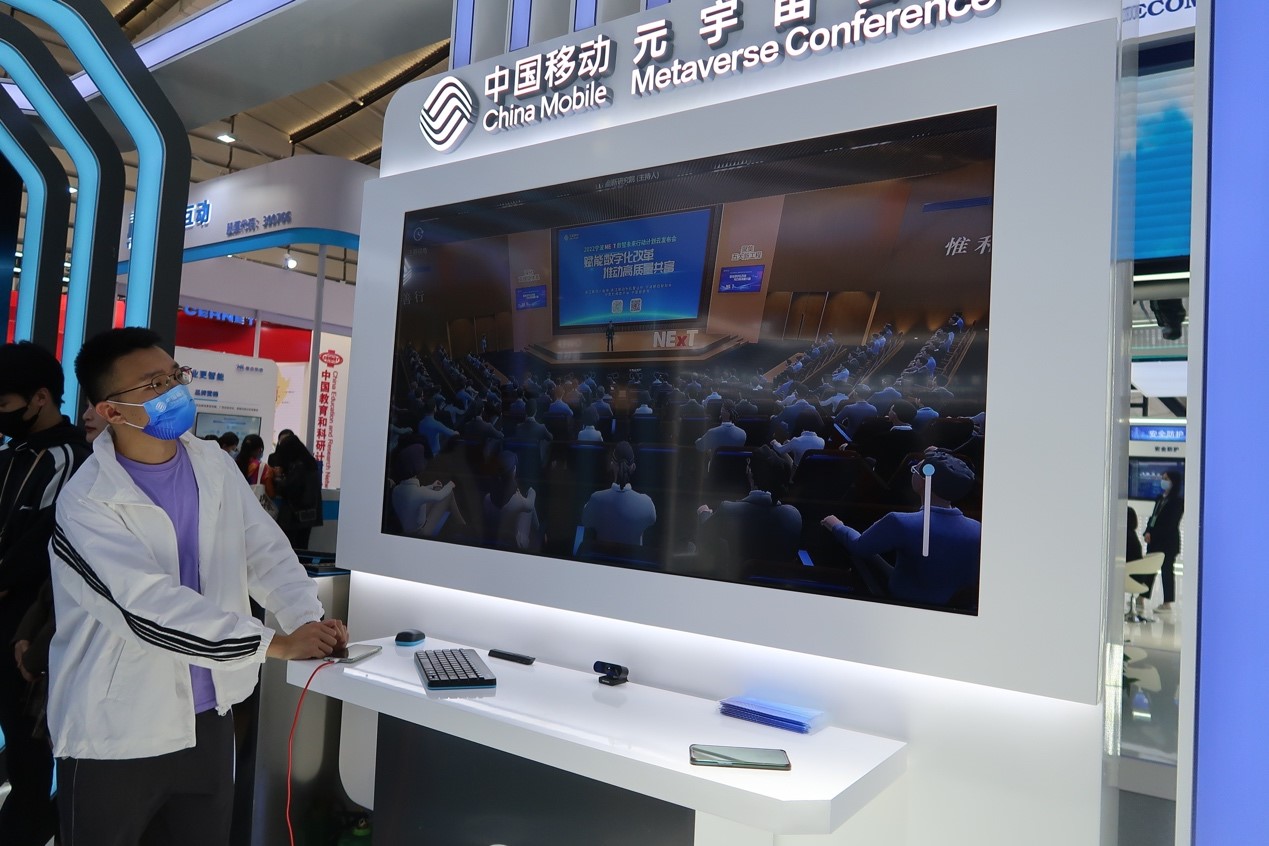
A man attends a metaverse conference at the Light of Internet Expo in Wuzhen, east China's Zhejiang Province, on Nov. 10, 2022. (People's Daily Online/Wu Chaolan)
Metaverse Conference creates digital event rooms where participants can join as avatars. Compared to video conferencing, metaverse conferencing provides an immersive experience for participants, who can carry out interactions such as shaking hands and prize giving. In addition to conferencing, the innovation can also be used in job fairs amid the COVID-19 pandemic.
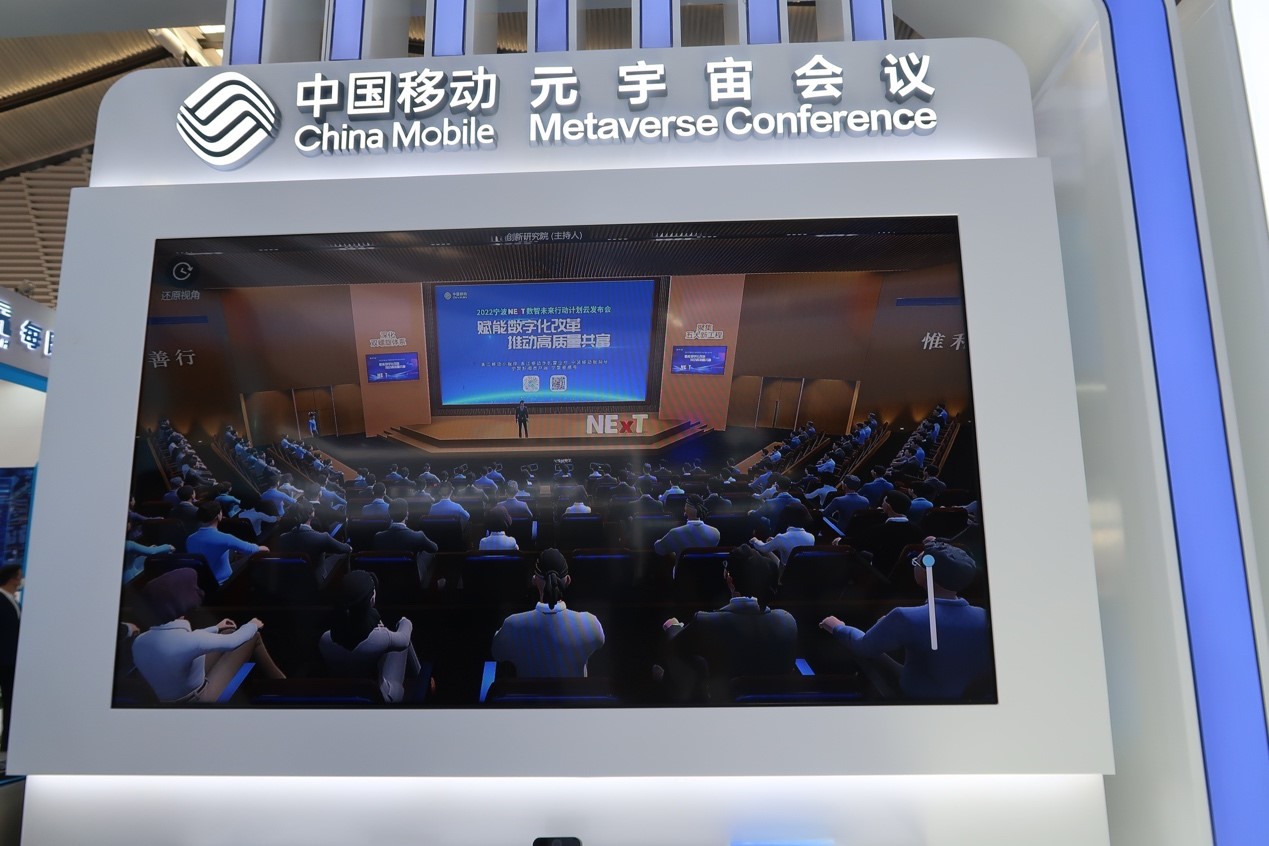
A photo shows a metaverse conference at the Light of Internet Expo in Wuzhen, east China’s Zhejiang Province on Nov. 10, 2022. (People’s Daily Online/Wu Chaolan)
Smart helmet
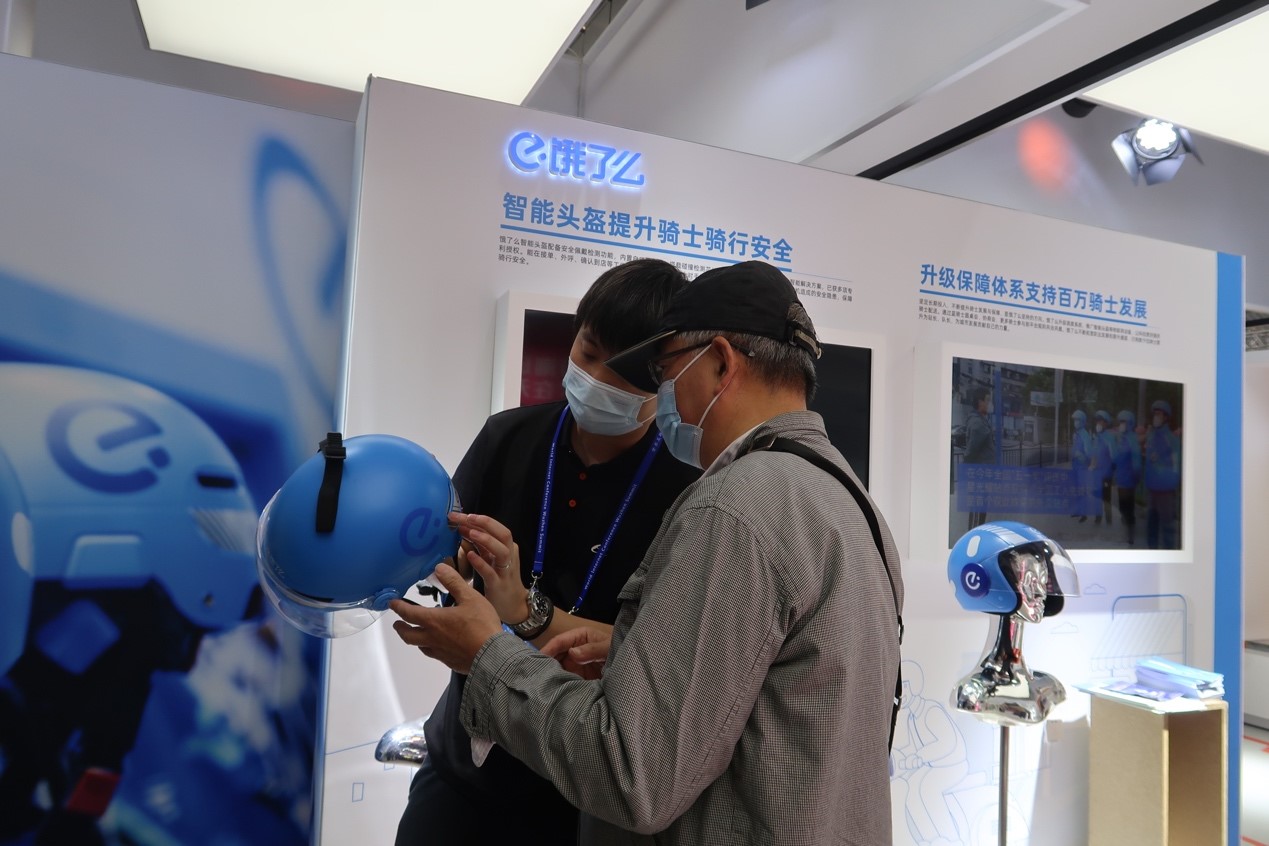
A staff member introduces the smart helmet to a visitor at the Light of Internet Expo in Wuzhen, east China's Zhejiang Province on Nov. 10, 2022. (People's Daily Online/Wu Chaolan)
The intelligent helmet aims to reduce safety risks for delivery personnel while they work. It enables them to receive orders through voice, which means they no longer need to check their phones during delivery. In addition to Mandarin, smart helmets recognize many dialects, such as the Northeast dialect and Cantonese. The helmet also has a built-in sensor that gives a prompt and calls the delivery person's emergency contact once it detects a collision. The helmet is currently in its large-scale testing phase.
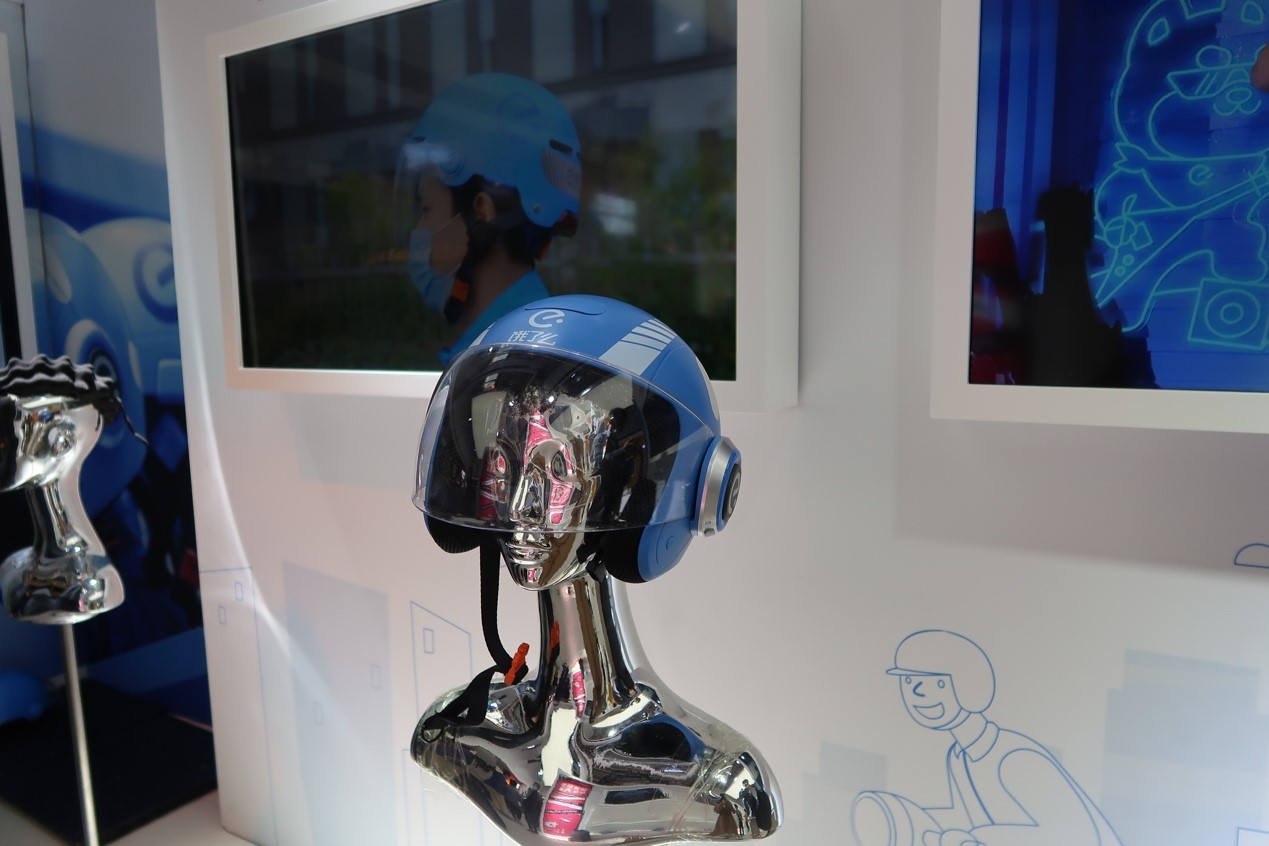
A photo shows a smart helmet at the Light of Internet Expo in Wuzhen, east China’s Zhejiang Province on Nov. 10, 2022. (People’s Daily Online/Wu Chaolan)
Mini program detects Alzheimer’s disease early
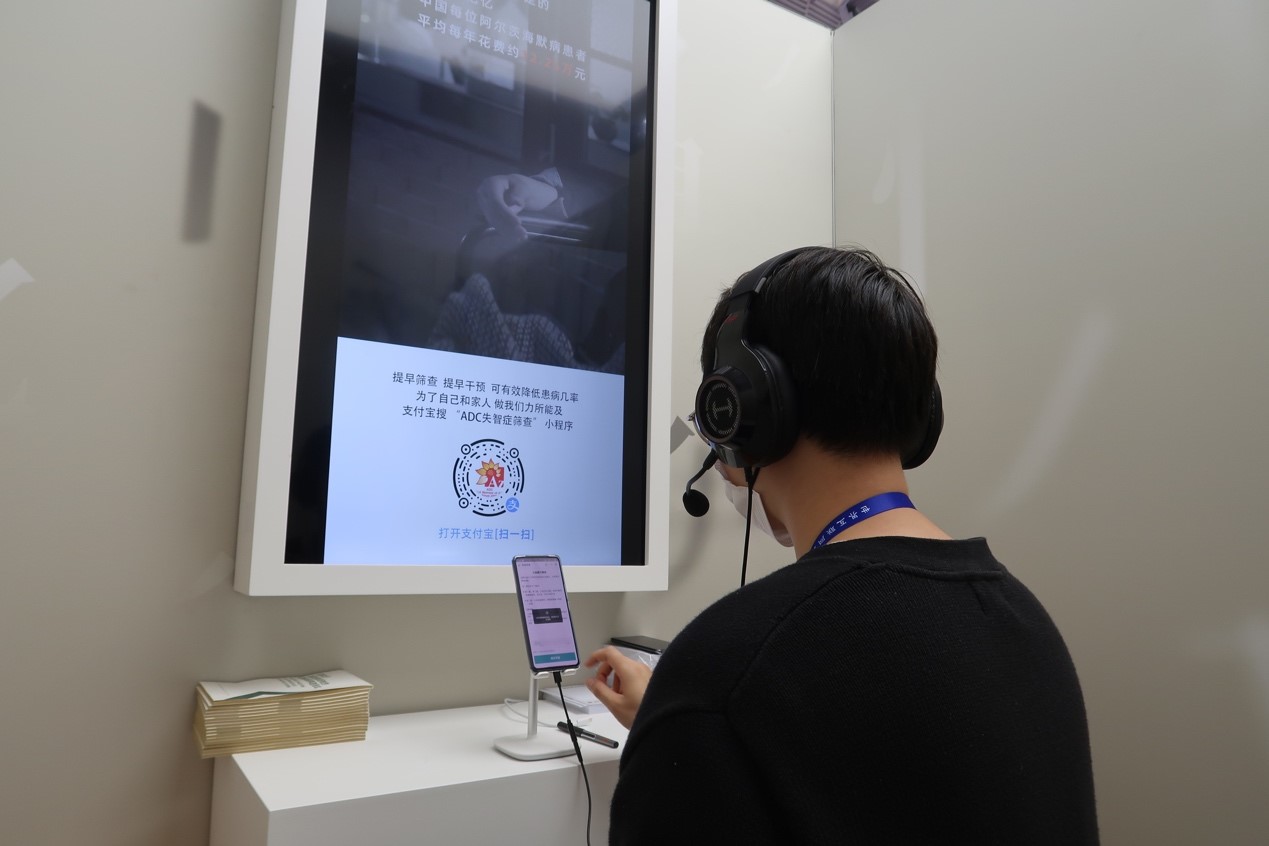
A man takes an Alzheimer’s disease detection test at the Light of Internet Expo in Wuzhen, east China’s Zhejiang Province on Nov. 10, 2022. (People’s Daily Online/Wu Chaolan)
With the growing number of Alzheimer's patients in China, this mini program uses Artificial Intelligence to detect Alzheimer's disease through an online test. The subject spends 15 minutes completing the test, which includes voice answers and drawing. More than 200,000 people have completed the test online.
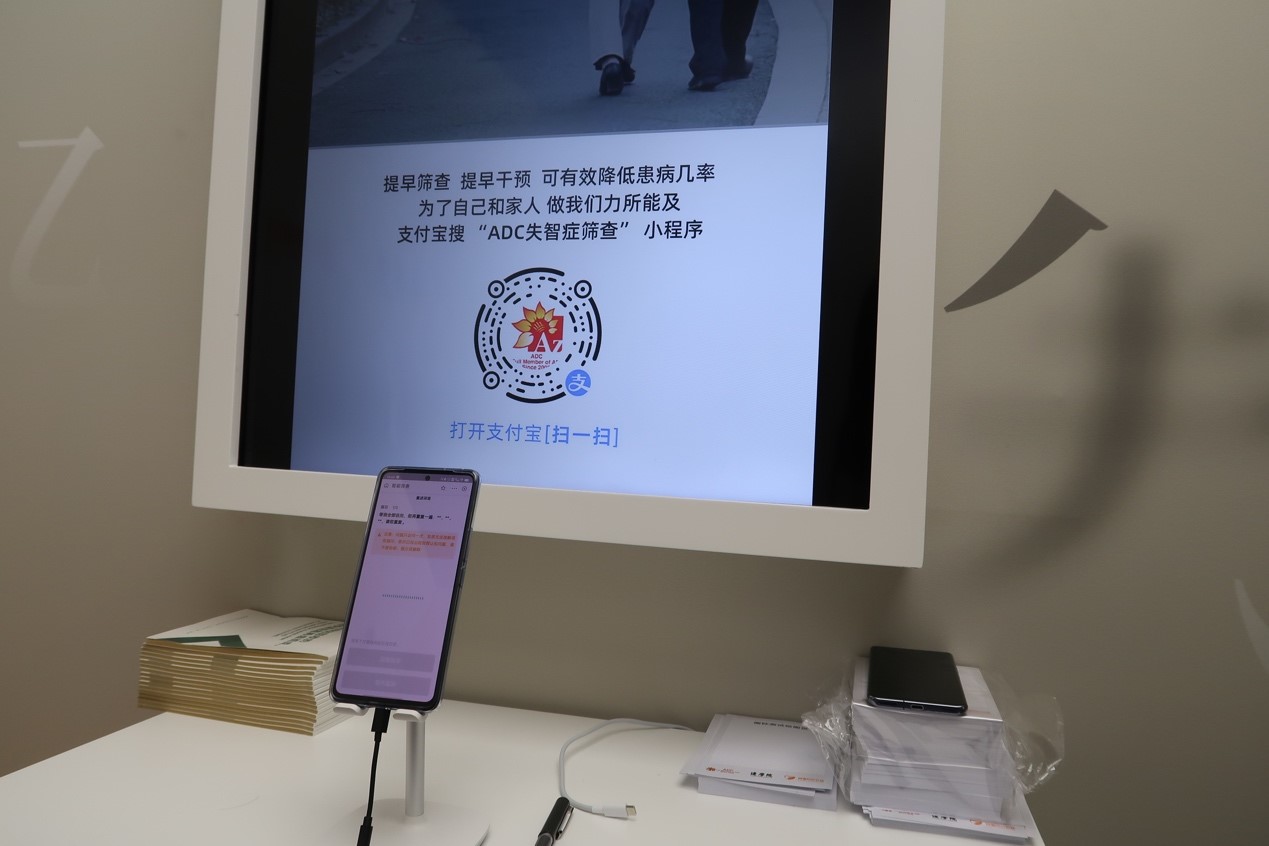
Photo shows a mini program for early detection of Alzheimer’s disease at the Light of Internet Expo in Wuzhen, east China’s Zhejiang Province on Nov. 10, 2022. (People’s Daily Online/Wu Chaolan)
Eye-tracking input system
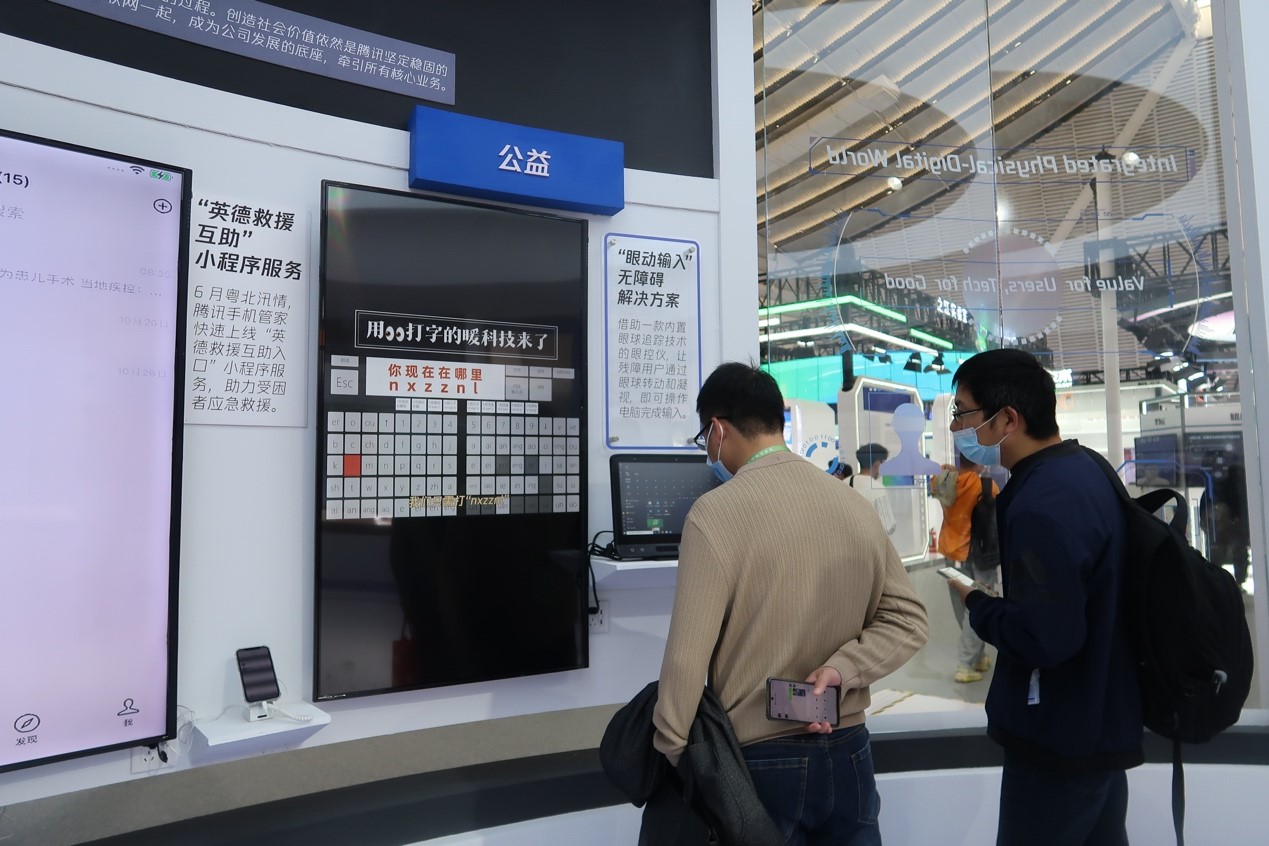
Visitors experience the eye-tracking input system at the Light of Internet Expo in Wuzhen, east China’s Zhejiang Province on Nov. 10, 2022. (People’s Daily Online/Wu Chaolan)
Eye-tracking is a sensor technology that can detect a person's presence and follow what they are looking at in real-time. This innovation allows users to input Chinese and English simply by moving their eyes. It aims to make communication easier for the disabled and elderly, and especially ALS patients.
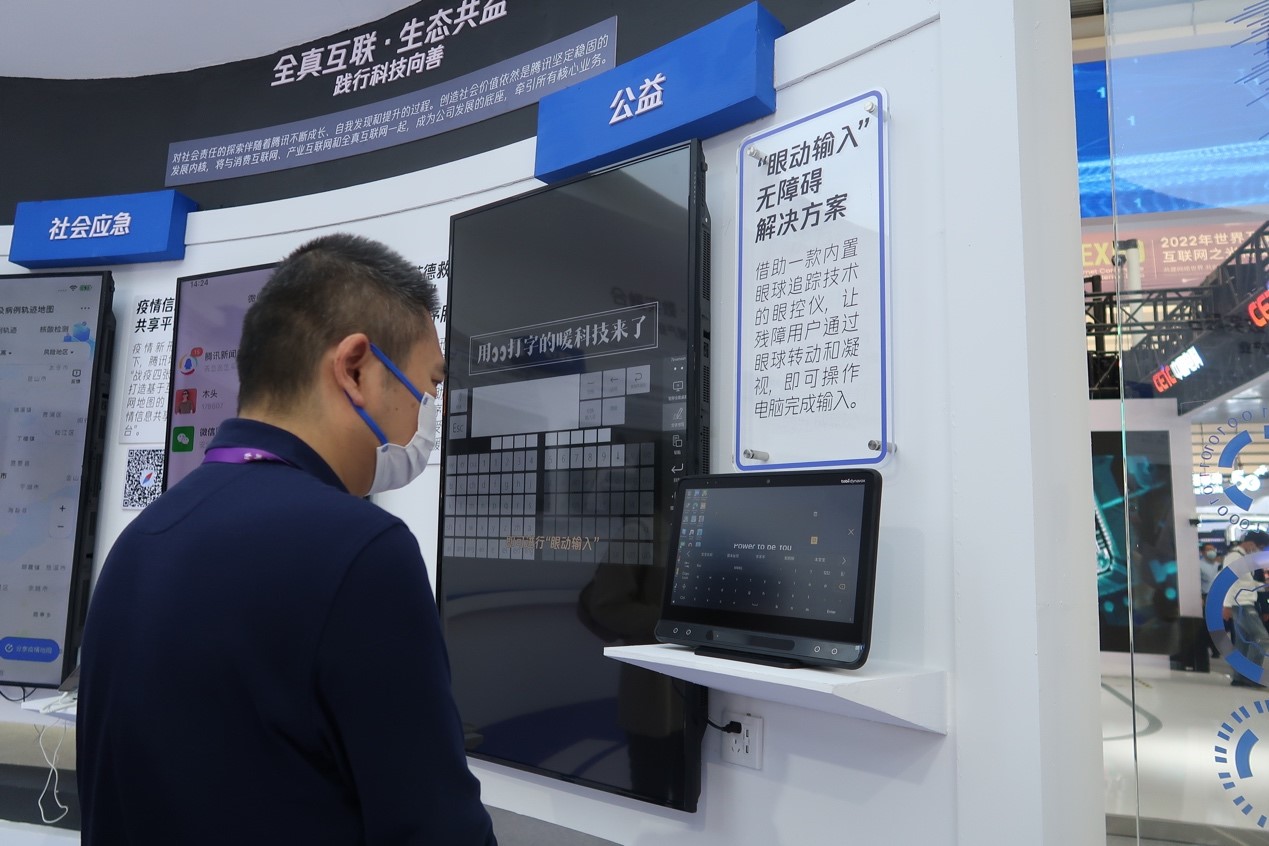
A man tries out the eye-tracking input system at the Light of Internet Expo in Wuzhen, east China’s Zhejiang Province on Nov. 10, 2022. (People’s Daily Online/Wu Chaolan)
Photos
Related Stories
Copyright © 2022 People's Daily Online. All Rights Reserved.









